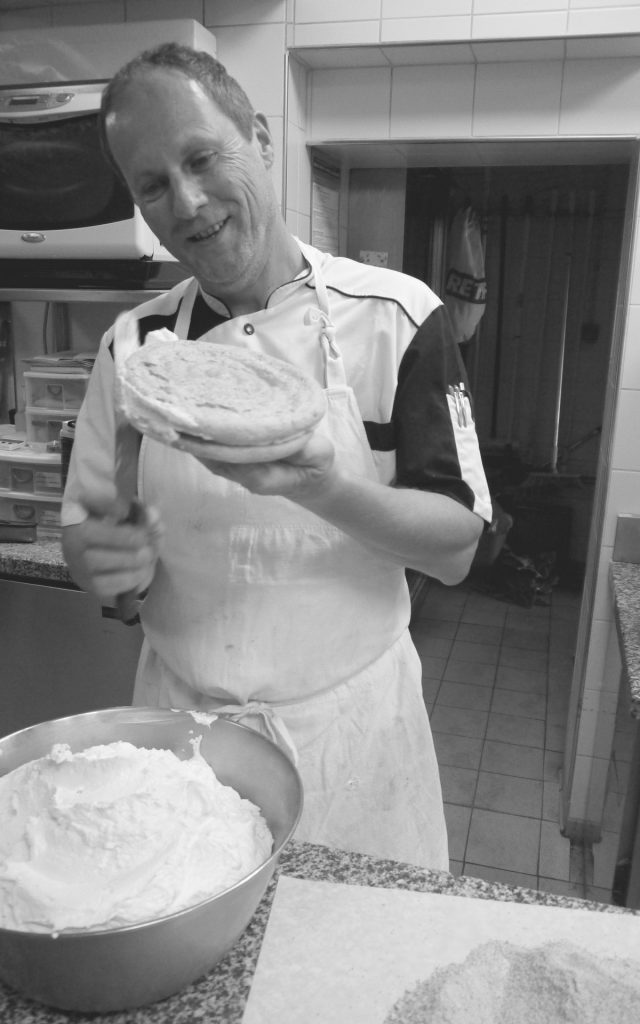What has experience taught you? Do you bring a personal touch to your work?
Macaron: the recipe is an institution, so I’ve never tried to get creative with it. When customers come for a Nancy Macaron, they’re expecting a macaron of a certain size, shape and softness. So, we can’t deviate too much from the recipe.
Baba: our personal touch is to constantly reinvent the baba with new syrups. I’ve tested babas with several different syrups. Customers always come back to the traditional recipe, especially the rum baba, because it’s what they’ve heard of. But since we’re in Lorraine, we also make it with mirabelle plums.
Marquises: I didn’t change the original recipe, but I’ve perfected it little by little by using better quality ingredients. I also had a special mould made. The utensil is used to dip and turn over the Marquises to cover them with meringue. It gives the Marquise its unique shape and is adapted to my flick of the wrist.
Who do you want to pass on your expertise to? And how do you plan to do it?
I really don’t have any trade secrets or special ways of doing things. We welcome groups all year round, and I’m the first to share our recipes and techniques with them. A skilled hand is something that can’t be taught. A spot-on recipe that works every time only comes from experience.
Any tips or advice to share about preparing or tasting?
Macarons: they can dry quickly if left out. The best way to make sure they stay soft is to keep them in the fridge. The idea isn’t to keep them cold, but the macaron will absorb the humidity of the fridge, even through the packaging, and they’ll stay soft for longer.
Baba: the best advice is to always have babas in the fridge, because if people arrive unexpectedly, it’s a quick way to make a little dessert. To plate two mirabelle babas, make a whipped-cream flower next to it, serve with a small scoop of mirabelle ice cream and a few mirabelles in syrup, and you have a beautiful and original dessert that’s ready to go.
Marquises: they can be enjoyed cold or warm. In the summer, put the bag in the sun for 30 minutes, and in the winter, put it on the radiator, also for 30 minutes. The heat will warm the praline inside, which will become soft and fluffy, while the meringue coating will remain a solid shell. Enjoy them in a single bite.















